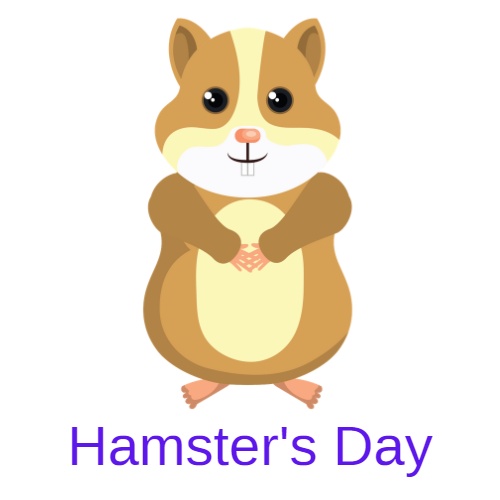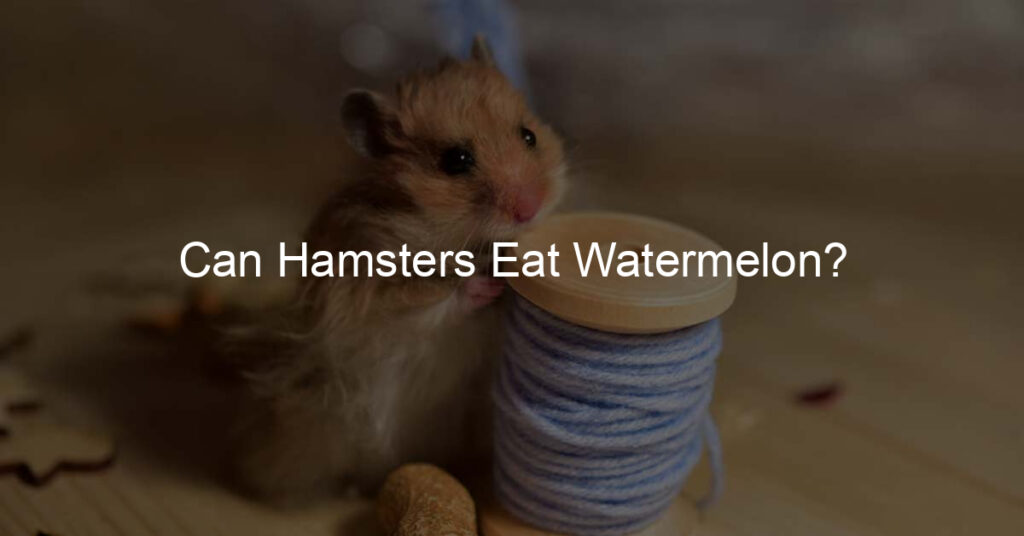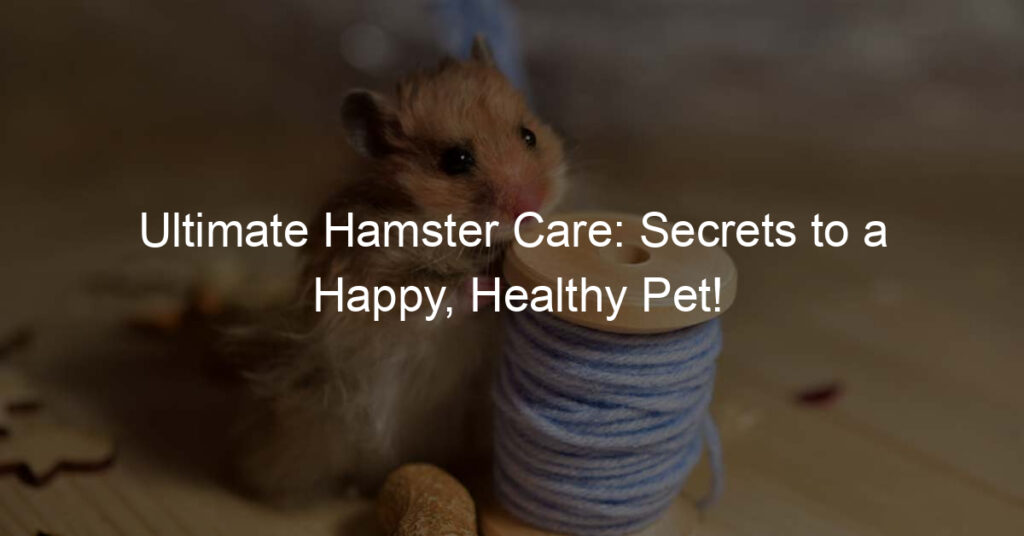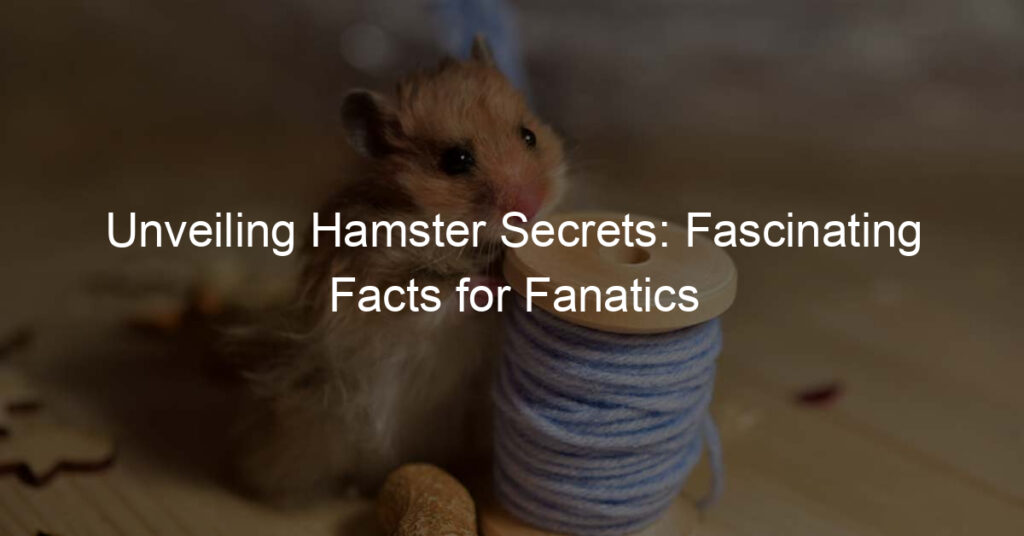As a hamster owner, you may wonder what types of food are safe and healthy for your adorable furry friend.
One popular summertime treat is watermelon, known for its refreshing sweetness and hydration properties. Still, it’s essential to consider whether can hamsters eat watermelon.
Hamsters have specific dietary needs, and not all human foods are safe or beneficial for them. Before you decide to share a piece of watermelon with your hamster, it’s crucial to understand how it may impact their health and well-being.
Let’s explore this topic to determine if watermelon can be a nutritious addition to your hamster’s diet.
Key Takeaways
- Watermelon can be a safe and enjoyable treat for hamsters in moderation
- Be cautious in removing seeds and feeding only small portions to avoid health risks
- Always consider your hamster’s dietary needs and explore alternative healthy snacks as well
Can Hamsters Eat Watermelon
Hamsters are small and adorable pets that require a well-balanced diet to stay healthy and happy.
A proper hamster diet should consist of various nutrients such as fiber, protein, and freshwater. It’s essential to understand their dietary needs to maintain their health and provide them with the right foods.
The foundation of a hamster’s diet consists of a good quality hamster mix, typically consisting of small seeds, pellets, and grains. This mix provides them with the fiber and protein they require for their daily activities.
Alongside the mix, it’s essential to supplement their diet with fresh vegetables and fruits to ensure they receive a variety of nutrients. Nonetheless, keep fruit portions small due to their high sugar content.
While offering a balanced diet, always provide your hamster with clean and fresh water to keep them hydrated. Proper hydration is vital for their overall well-being, as it aids digestion and helps maintain their body temperature.
Physical exercise is also a necessary part of a hamster’s life. In addition to diet, hamsters require physical activities to burn off energy, keep their teeth in good shape, and maintain a healthy body weight.
So, when it comes to watermelon – yes, hamsters can eat it, but only in moderation. Watermelon provides some nutritional benefits that can complement a balanced diet.
However, make sure to remove the seeds before offering it to your pets and avoid overfeeding to prevent health issues.
Keeping your hamster’s diet diverse, providing fresh water, and ensuring regular exercise will lead to a healthy and long life for your furry friend.
Watermelon: An Overview
Watermelon is a popular fruit that is widely loved for its refreshing and hydrating properties. This delicious treat is made up of more than 90% water, making it an excellent choice for keeping cool and quenching thirst during hot summer days.
As a healthy snack option, watermelon is loaded with essential nutrients that are beneficial to both humans and some animals, like hamsters.
It is a good source of vitamins C, A, and B6, as well as minerals such as potassium and magnesium. These vitamins and minerals contribute to the overall health of the immune system, maintaining healthy skin and supporting muscle function, respectively.
One remarkable feature of watermelon is its high content of lycopene and citrulline. Lycopene is an antioxidant known to provide several health benefits, including reducing the risk of certain types of diseases and protecting the skin from harmful UV rays.
On the other hand, citrulline is an amino acid that can promote blood flow and improve cardiovascular health.
Despite its high water content, watermelon also contains a significant amount of sugar. This natural sugar gives the fruit its sweet taste, but it is essential to be mindful of the sugar intake, especially for animals such as hamsters, whose diet should be low in sugar.
In conclusion, watermelon is a fruit with numerous health benefits due to its rich nutrient profile and high water content. Yet, while balancing the sugar levels, it should be consumed in moderation, especially when feeding smaller animals like hamsters.
Is Watermelon Safe for Your Hamster?
Watermelon is a refreshing summer fruit that is not only loved by humans but also enjoyed by many pets, including hamsters. Yes, watermelon is safe for hamsters to consume, but only in small quantities and in moderation.
Incorporating this juicy fruit into their diet can be a great way to provide them with some variation. However, there are a few things to keep in mind when feeding watermelon to your hamster.
Firstly, the watermelon seeds should be removed before offering the fruit to your hamster. Watermelon seeds can pose as potential choking hazards for hamsters due to their small size.
Besides, hamsters might have difficulty digesting the seeds. By removing the seeds, you’re ensuring a safer snack for your little furry friend.
Another part of the watermelon that should be avoided is the stem and the rind. The stem of the watermelon can be too tough for hamsters to chew on, and it may lead to choking.
The watermelon rind, although not toxic, is also difficult for them to digest. Therefore, it’s best to stick with offering only the juicy, red flesh of the watermelon to your hamster.
Portion control is crucial when feeding watermelon to your hamster. As the fruit is high in sugar and water content, overfeeding can lead to digestive issues or even obesity.
A small piece of watermelon, about the size of a thumbnail, should suffice as an occasional treat.
In conclusion, watermelon can be a safe and enjoyable treat for your hamster as long as you are mindful of the portion size and ensure that the seeds, stem, and rind are not included.
By taking these precautions, you can provide your hamster with a delightful and healthy snack.
Potential Benefits of Watermelon to Hamsters
Watermelon can be a delightful snack for hamsters when given in moderation. This juicy fruit offers several health benefits that can contribute to the well-being of these tiny pets.
In this section, we explore the potential benefits of watermelon to hamsters.
Being made of over 90% water, watermelon is a hydrating treat for hamsters. It can help ensure they get adequate moisture in their diet while also providing a refreshing snack on hot days.
Maintaining proper hydration is crucial for a hamster’s overall health and well-being.
Watermelon is also rich in vitamin C and antioxidants, which are essential for a hamster’s immune system. These nutrients help protect their bodies from oxidative damage and maintain good health.
Also, vitamin C plays a vital role in maintaining healthy skin, bones, and teeth.
Another benefit of watermelon for hamsters is its fiber content. Fiber is crucial for a hamster’s digestive system, as it aids in digestion and helps prevent constipation.
Offering fiber-rich snacks like watermelon can provide a natural remedy to digestive issues and keep their gut health in check.
Furthermore, watermelon is a nutritious fruit containing a variety of essential vitamins and minerals. Some of these nutrients include vitamins A, B6, and potassium, all of which contribute to a well-rounded diet for hamsters.
In summary, watermelon can be a beneficial snack for hamsters if given in small quantities. Its hydrating properties, vitamin C content, antioxidants, and fiber can positively impact a hamster’s health.
Remember to always provide your hamster with a balanced diet and consult your vet if you have any concerns about their nutrition.
Feeding Watermelon to Hamsters
Feeding watermelon to your hamster can be a delightful and refreshing treat for them. It is safe for all kinds of hamsters, including Dwarf, Robo, and Syrian hamsters, but it is essential to remember to give it to them in moderation.
The high water content in watermelon can cause stomach upset if they consume too much of it.
Before feeding watermelon to your hamster, it’s crucial to wash the fruit thoroughly to remove any pesticides that might be harmful to them. After washing, make sure to slice the watermelon into small, manageable pieces for your furry friend to nibble on.
If possible, opt for a seedless watermelon to avoid any choking hazards from the seeds.
To introduce watermelon into your hamster’s diet, start by offering a small piece and observe their reaction. If your hamster appears to enjoy it and shows no adverse effects, you can provide watermelon as an occasional treat.
Keep in mind that a balanced diet is essential for your hamster’s overall health, so make sure not to overdo it with watermelon or any other treats.
Feeding watermelon to hamsters can be a pleasant treat for them as long as it is done in moderation, the fruit is washed and sliced properly, and seedless watermelon is preferred.
Risks and Cautions
When feeding watermelon to your hamster, it is essential to be mindful of the potential risks and take necessary precautions. Watermelon is safe for hamsters but only in moderation, as it has a high sugar content.
Consuming too much sugar can lead to obesity, diabetes, and other health issues in hamsters.
One notable risk associated with watermelon is the presence of watermelon seeds. These seeds pose a choking hazard, especially for smaller hamsters.
It is essential to remove the seeds before offering watermelon to your pet, as this will help prevent any choking incidents.
Apart from choking hazards, another potential issue that can arise from feeding watermelon to hamsters is diarrhea. Due to watermelon’s high water content, excessive consumption can lead to digestive issues such as loose stools or diarrhea.
To prevent this, it is recommended to feed watermelon in small quantities and keep a close eye on your hamster’s reaction to this juicy treat.
When offering watermelon to your hamster, it is crucial to only provide fresh fruit, avoiding any watermelon juice or products containing watermelon as an ingredient.
This is because commercial watermelon juice may contain added sugars and other ingredients that could be harmful to your pet.
Furthermore, it is essential to wash the watermelon thoroughly before feeding it to your hamster to remove any potential insecticides or contaminants from the fruit’s surface.
While watermelon can be a delicious and refreshing treat for your hamster, it is vital to ensure you take the necessary precautions, such as removing seeds, feeding in moderation, and providing only fresh, clean fruit.
This will help maintain your hamster’s overall health and happiness.
Alternatives to Watermelon in Hamster’s Diet
While watermelon can be a nice treat for your hamster, it’s important to offer a variety of fruits and vegetables to maintain a balanced diet. Here are some alternative options that you can consider including in your hamster’s meal plan.
Just remember to introduce new foods gradually and always in moderation.
Apples are a popular fruit choice for hamsters, as they provide essential vitamins and minerals. Make sure to remove the seeds before offering apple pieces to your pet, as they can be toxic to hamsters.
Strawberries can also be a delightful addition to your hamster’s diet. Rich in antioxidants and vitamin C, this fruit can be a healthy snack. Just remember to wash them thoroughly to remove any pesticides and serve in small portions to avoid overfeeding.
When it comes to vegetables, carrots are a fantastic choice for your hamster. They offer a good source of beta-carotene, which helps maintain healthy eyesight and skin in pets. Additionally, their crunchy texture can help keep your hamster’s teeth in good condition.
Broccoli is another nutrient-rich vegetable that can benefit your hamster’s health. It’s packed with vitamins and minerals, such as vitamin C and potassium. Be sure to serve it in small quantities, as too much can lead to digestive issues.
Cucumber is a refreshing alternative that is low in calories and high in water content, making it a hydrating snack for your furry friend. Just be cautious not to overfeed it, as excessive water intake can cause diarrhea.
Incorporating a variety of fruits and vegetables in your hamster’s diet can provide numerous health benefits and keep their meals interesting. Always consult a veterinarian for guidance on your pet’s specific dietary needs and restrictions.
Summing Up
Watermelon can be a delightful treat for hamsters as long as it is offered in moderation. This fruit provides hydrating and delicious benefits to their diet.
It’s important to remember that, despite their small size, hamsters do require a varied assortment of foods to maintain optimal health.
In small quantities, watermelon provides hamsters with essential nutrients such as vitamins, minerals, and fiber. These nutrients are perfect for their diet, especially during hot summer months when hydration is critical.
Nevertheless, it is crucial to avoid overfeeding watermelon to hamsters, as it could lead to adverse effects, particularly in dwarf hamsters.
Other fruit alternatives can be fed to hamsters if watermelon is unavailable or if pet owners seek variety. Always ensure that new foods are introduced gradually and observe the hamster for any signs of distress or discomfort.
Remember that moderation is key, and a balanced diet will ensure that your furry friend remains healthy and happy.
Frequently Asked Questions
Is watermelon safe for teddy bear hamsters?
Yes, watermelon is safe for teddy bear hamsters in small quantities. Make sure to remove seeds and only give them a small piece to enjoy from time to time.
Can dwarf hamsters enjoy watermelon?
Dwarf hamsters can also enjoy watermelon in moderation. Just like other hamster breeds, it is important to remove any seeds and only offer them a small portion.
What fruits are suitable for hamsters?
Hamsters can eat a variety of fruits, such as apples, bananas, blueberries, and grapes. Remember to provide them in moderation and remove any seeds or pits before offering these fruits to your hamster.
Are there any fruits harmful to hamsters?
Some fruits, such as citrus fruits like oranges and lemons, can be harmful to hamsters as they are too acidic. Avoid feeding these fruits to your hamster. Another fruit to avoid is avocado, which contains a substance called persin that is toxic to hamsters.
Are there any melons hamsters should avoid?
Most melons, including cantaloupe and honeydew, are safe for hamsters in small amounts. However, as with any fruit, moderation is key. Make sure to remove the seeds and only give them small pieces occasionally.
Can hamsters have an allergic reaction to watermelon?
Although rare, hamsters can potentially have an allergic reaction to watermelon. If you notice any signs of distress or discomfort in your hamster after consuming watermelon, such as unusual behaviors or difficulty breathing, consult a veterinarian immediately.








